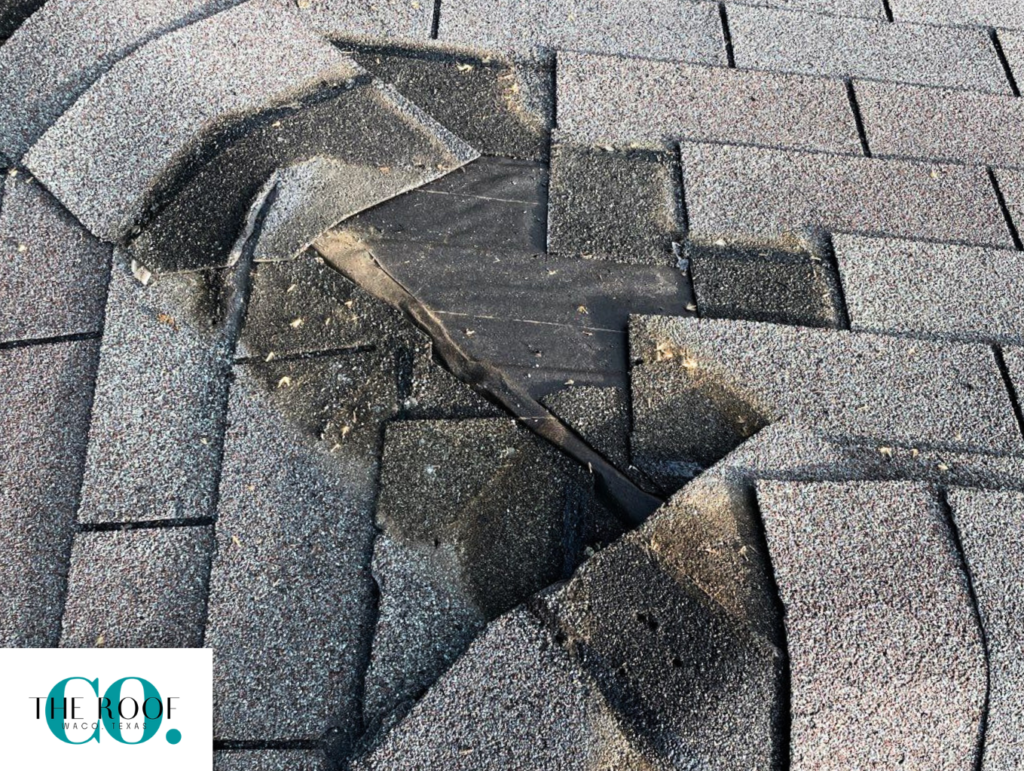January 2, 2025

When it comes to a residential roof installation, selecting the right contractor is one of the most critical decisions you’ll make. A roof is your home’s primary defense against the elements, and its quality depends heavily on the expertise and integrity of the contractor you hire. With so many roofing companies to choose from, how do you ensure you’re making the best choice?
This comprehensive guide will walk you through the process of choosing a trustworthy and experienced roofing contractor. From essential questions to ask to red flags to avoid, these tips will help you navigate the selection process confidently.
1.Why Choosing the Right Roofing Contractor Matters
Your roof is one of the most significant investments you’ll make as a homeowner. A well-installed roof:
- Protects your home. From harsh weather conditions to structural damage.
- Improves energy efficiency. High-quality installation reduces air leaks, lowering energy bills.
- Boosts property value. A durable and visually appealing roof enhances curb appeal and resale potential.
Hiring a reputable contractor ensures that your residential roof installation is completed safely, efficiently, and to the highest standards.
2. Steps to Choose the Right Roofing Contractor
1. Start with Research
Begin your search by compiling a list of local roofing contractors. You can do this by:
- Asking for recommendations. Friends, family, and neighbors who have had roof work done can provide valuable referrals.
- Searching online. Use platforms like Google, Yelp, and Better Business Bureau (BBB) to find contractors with strong reviews and ratings.
- Checking industry associations. Organizations like the National Roofing Contractors Association (NRCA) maintain directories of certified professionals.
2. Verify Credentials
A reliable contractor will have the necessary licenses, insurance, and certifications to perform residential roof installation. Here’s what to look for:
- Licensing. Confirm that the contractor is licensed to operate in your state or region.
- Insurance. Ensure they carry liability insurance and workers’ compensation to protect you from financial liability in case of accidents.
- Certifications. Manufacturers often certify contractors to install specific roofing products, which is a mark of expertise.
3. Review Past Work
Request a portfolio or examples of previous projects similar to yours. Pay attention to:
- Quality of materials and craftsmanship
- Variety of roofing styles and materials they’ve worked with
- Customer feedback on completed projects
You can also ask for references and contact past clients to inquire about their experiences.
3. Questions to Ask a Roofing Contractor
Before hiring a contractor, prepare a list of questions to ensure they are a good fit for your project. Here are key questions to ask:
Experience and Expertise
- How long have you been in business?
- Do you specialize in residential roof installation?
- Are your workers trained and certified?
Insurance and Licensing
- Can you provide proof of licensing and insurance?
- Will you handle permits for the project?
Timeline and Costs
- How long will the installation take?
- What is included in your estimate, and are there potential additional costs?
- Do you offer warranties for materials and labor?
Project Specifics
- How will you protect my property during the installation?
- What is your process for dealing with unexpected issues, like damaged decking?
- Can you provide a detailed contract with all terms and conditions?
Reputation
- Do you have local references I can contact?
- Have you received any complaints, and how were they resolved?
4. Red Flags to Avoid
Unfortunately, not all contractors operate with integrity. Watch out for these warning signs to avoid costly mistakes:
1. Lack of Proper Documentation
If a contractor hesitates to provide proof of licensing, insurance, or certifications, it’s a red flag. This documentation protects you from liability and ensures compliance with industry standards.
2. High-Pressure Sales Tactics
Beware of contractors who pressure you into signing a contract immediately or push you toward unnecessary upgrades. A trustworthy contractor will give you time to consider your options.
3. No Written Estimate
Always insist on a written estimate detailing the scope of work, materials, labor, and costs. Verbal agreements can lead to misunderstandings and disputes.
4. Unusually Low Bids
While cost is an important factor, significantly lower bids often indicate poor-quality materials, inexperienced labor, or hidden costs. Remember, you get what you pay for.
5. Poor Communication
If a contractor is difficult to reach, fails to answer your questions clearly, or avoids discussing concerns, it may be a sign of unreliability.
5. Importance of Reviews and References
Reviews and references provide valuable insights into a contractor’s reputation and work quality. Here’s how to use them effectively:
1. Check Online Reviews
Look for patterns in customer feedback. Consistent complaints about delays, poor communication, or subpar workmanship are red flags, while positive reviews about professionalism and reliability indicate a trustworthy contractor.
2. Request References
Ask the contractor for a list of recent clients you can contact. When speaking with references, inquire about:
- The contractor’s adherence to timelines and budgets
- The quality of work and materials used
- Any issues encountered and how they were resolved
3. Look for Industry Recognition
Awards, certifications, or memberships in professional organizations can signal a contractor’s commitment to excellence.
6. Comparing Estimates and Warranties
Once you’ve shortlisted a few contractors, request detailed estimates to compare their offerings. Pay attention to:
1. Cost Breakdown
Ensure the estimate includes:
- Material costs
- Labor charges
- Additional fees for permits, disposal, or repairs
2. Warranty Coverage
A reliable contractor will offer warranties for both materials and labor. Confirm:
- The length of the warranty period
- What the warranty covers (e.g., leaks, workmanship, material defects)
- The process for filing a warranty claim
7. Ensuring a Smooth Residential Roof Installation
Even after selecting a contractor, your involvement is essential to ensure the project runs smoothly. Here’s how to stay proactive:
1. Review the Contract Carefully
Before signing, read the contract thoroughly to understand the terms, payment schedule, and scope of work. Ensure all verbal agreements are documented.
2. Communicate Regularly
Establish clear communication with the contractor and request regular updates on the project’s progress.
3. Inspect the Work
Once the installation is complete, conduct a walkthrough with the contractor to inspect the finished roof. Verify that all aspects of the project meet your expectations.
4. Keep Records
Maintain a file with contracts, receipts, warranties, and correspondence for future reference.
8. Why Hiring the Right Contractor Is Worth It
Hiring the right contractor for your residential roof installation isn’t just about getting the job done—it’s about ensuring the job is done right. A professional and trustworthy contractor provides benefits that extend far beyond the initial installation. Here’s a closer look at why choosing the right contractor is critical:
1. Superior Workmanship
A skilled contractor understands the complexities of roof installation, from preparing the roof deck to installing flashing and ventilation systems. They ensure every detail is handled with precision, which is crucial for:
- Preventing leaks and water damage
- Ensuring proper alignment of materials for both functionality and aesthetics
- Enhancing the overall durability of the roof system
Shoddy workmanship, on the other hand, can result in frequent repairs, shortened roof lifespan, and costly damage to your home’s structure.
2. Access to High-Quality Materials
Reputable contractors often have partnerships with trusted suppliers, giving you access to premium roofing materials at competitive prices. These materials:
- Perform better under harsh weather conditions
- Come with manufacturer warranties, adding an extra layer of protection
- Offer a variety of styles and colors to match your home’s aesthetic
Subpar contractors may cut corners by using lower-quality materials that compromise your roof’s integrity and appearance.
3. Adherence to Safety Standards
Roof installation is a high-risk job that requires proper safety protocols. A licensed and insured contractor:
- Utilizes trained crews equipped with the right tools and safety gear
- Adheres to local building codes and regulations, avoiding legal issues
- Protects you from liability for accidents or injuries that may occur during the project
Unlicensed contractors or those without insurance can leave you financially vulnerable if an accident happens on your property.
4. Saves Time and Reduces Stress
An experienced contractor manages all aspects of the project, including:
- Acquiring necessary permits
- Scheduling inspections
- Coordinating materials and labor
This streamlined process ensures your roof is installed efficiently and within the agreed timeframe, minimizing disruptions to your daily life. Without a reliable contractor, you may face project delays, miscommunications, and unforeseen complications that can lead to frustration and additional expenses.
5. Comprehensive Warranties
Quality contractors back their work with warranties for both materials and labor. This guarantees that:
- If an issue arises due to defective materials or poor installation, it will be addressed at no extra cost.
- You have long-term peace of mind knowing your investment is protected.
Fly-by-night contractors rarely offer warranties—or worse, they disappear when problems arise, leaving you to foot the bill for repairs.
6. Proper Diagnosis and Solutions
Every home is unique, and so are its roofing needs. Professional contractors take the time to assess your roof and recommend solutions tailored to your specific circumstances. For example:
- They might identify underlying issues like rotting decking or inadequate ventilation that must be addressed before installation.
- They’ll recommend materials suited to your climate and budget, ensuring optimal performance.
Amateur contractors may overlook these crucial factors, resulting in a roof that fails to meet your expectations.
7. Boosts Energy Efficiency
A properly installed roof contributes to your home’s energy efficiency by:
- Reducing heat transfer, lowering cooling costs in the summer
- Preventing air leaks, keeping your home warmer in the winter
- Supporting proper ventilation to avoid moisture buildup and insulation damage
A professional contractor ensures these elements are correctly implemented, saving you money on energy bills and enhancing your home’s comfort.
8. Protects Your Home’s Value
A roof is a major selling point for prospective buyers. Hiring a reputable contractor to handle your residential roof installation ensures:
- Your roof enhances the curb appeal of your home
- Inspection reports validate that the installation meets or exceeds industry standards
- Potential buyers are reassured by the warranties and quality of work
An improperly installed roof, however, can deter buyers and significantly lower your home’s market value.
Conclusion
Choosing the right contractor for your residential roof installation is a critical decision that impacts your home’s safety, appearance, and value. By taking the time to research, verify credentials, and ask the right questions, you can find a contractor who delivers quality and reliability. Avoid red flags, compare estimates, and prioritize clear communication to ensure your project runs smoothly.
At Roof Co , we understand that a roof installation is more than just a project—it’s a commitment to protecting your home and family. With years of experience, a team of certified professionals, and a track record of satisfied customers, we’re here to make your roofing experience stress-free and successful. Contact us today to schedule a consultation and take the first step toward a roof you can trust for years to come.
The post How to Choose the Right Contractor for Your Residential Roof Installation appeared first on The Roof Co Waco.




















